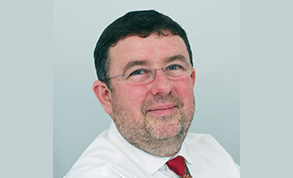Providers insist trusts are restoring services to pre-Covid levels
The member organisation said trusts were worried that the narrative about the NHS focusing only on Covid-19 had discouraged non-Covid patients. The NHS wound down some provision in its initial response and there have been subsequent concerns that cancer patients, for example, were not being referred to specialists or patients with heart attacks were not presenting at A&E.
However, NHS Providers insisted that, at the pandemic’s peak, for every one Covid-19 patient in hospital, there were two non-Covid inpatients. Most mental health and ambulance, and many community services, continued to function at pre-Covid levels of activity or higher, it claimed.
NHS England and NHS Improvement are pushing for services to be restored. Guidance issued in July and August moved the service into the third phase of its response to Covid, incentivising a restoration of activity to near pre-Covid levels before winter.
In September, trusts should aim to deliver at least 80% of last year’s overnight elective and outpatient/day case procedures, rising to 90% in October. To support this, by October MRI and CT diagnostic capacity should increase to the same level as last year. And first outpatient attendances and follow-ups (face-to-face or virtually) should be at the same level as last year.
Performance figures for England showed the scale of the challenge. More than half the four million people on elective waiting lists have been waiting more than 18 weeks, the highest figure since records began in 2007.
However, NHS Providers also noted positive signs – there had been a 50% increase in the number of operations since June, while in July 25% more diagnostic tests were carried out than in June. Other figures, such as the number of cancer referrals, were also up.
NHS Providers said it was true that Covid constraints had reduced capacity by between 10% and 30% in some trusts.
But in a briefing, providers said trusts were demonstrating resilience and resourcefulness to recover service volumes.
Luton and Dunstable Hospital, for example, had created a new drive-through lung function testing system, while Epsom and St Helier University Hospitals NHS Trust had increased virtual outpatient appointments, expanded waiting rooms and used private sector units for elective care.
NHS Providers chief executive Chris Hopson (pictured) said: ‘Chief executives tell us that they are recovering activity levels significantly faster than they were expecting to just two or three months ago.
‘Trust leaders worry that the current unrelenting focus on what the NHS is unable to do, as opposed to how rapidly it is recovering services, is also discouraging patients from coming forward to seek help when they need it. The NHS is there for all patients, whatever their need.’
Related content
We are excited to bring you a fun packed Eastern Branch Conference in 2025 over three days.
This event is for those that will benefit from an overview of costing in the NHS or those new to costing and will cover why we cost and the processes.